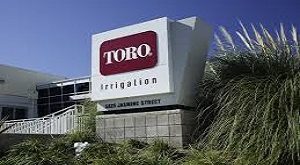Introduction
Zhejiang Geely Holding Group, commonly known as Geely, has emerged as one of the leading automotive manufacturers in China and a significant player in the global automotive market. Founded in 1986 by Li Shufu, Geely began as a small enterprise producing refrigerator parts and has since transformed into a diversified automotive conglomerate, owning several well-known automotive brands and participating in various sectors of the automotive industry. This article will explore the history, development, business strategies, technological innovations, global presence, and future prospects of Zhejiang Geely Holding Group, highlighting its journey from a local manufacturer to a global automotive powerhouse.
1. Historical Background
1.1 The Founding of Geely
Geely was founded in 1986 in Taizhou, Zhejiang Province, China. Initially, the company focused on producing refrigerator parts and gradually expanded its operations into the automotive sector. In 1997, Geely produced its first motorcycle, marking its entry into the two-wheeled vehicle market.
1.2 Entry into Automobile Manufacturing
In 1998, Geely launched its first automobile, the Geely Haoqing, which was a compact sedan. This marked a significant milestone for the company, as it transitioned from a motorcycle manufacturer to a full-fledged automobile manufacturer. Geely’s early vehicles were affordable and aimed at the domestic market, catering to the growing demand for personal transportation in China.
1.3 Rapid Growth and Expansion
Throughout the 2000s, Geely experienced rapid growth, driven by the booming Chinese automotive market. The company adopted an aggressive expansion strategy, focusing on increasing production capacity and diversifying its product offerings. In 2005, Geely became the first privately-owned Chinese automaker to list its shares on the Hong Kong Stock Exchange, raising capital to fuel its expansion plans.
2. Business Strategy
2.1 Diversification and Acquisitions
Geely has pursued a strategy of diversification to enhance its competitiveness in the global automotive market. The company has made several strategic acquisitions, including:
- Volvo Cars: In 2010, Geely acquired Volvo Cars from Ford Motor Company, gaining access to advanced technology, engineering expertise, and a prestigious brand.
- Lotus Cars: In 2017, Geely acquired a majority stake in Lotus, a British sports car manufacturer, to strengthen its performance vehicle portfolio.
- Proton Holdings: In 2017, Geely acquired a 49.9% stake in Proton, a Malaysian automotive manufacturer, expanding its presence in Southeast Asia.
These acquisitions have allowed Geely to broaden its product range and enhance its technological capabilities.
2.2 Focus on Innovation and Technology
Geely places a strong emphasis on innovation and technology to remain competitive in the automotive industry. The company invests heavily in research and development (R&D), focusing on areas such as electric vehicles (EVs), autonomous driving, and connectivity. Geely aims to position itself as a leader in smart mobility solutions, aligning with the global shift toward sustainable transportation.
3. Product Portfolio
3.1 Automotive Brands
Geely’s product portfolio includes several brands that cater to different market segments. Notable brands under the Geely umbrella include:
- Geely Auto: The flagship brand offering a range of vehicles, including sedans, SUVs, and compact cars. Geely Auto focuses on affordability and value for money, targeting the domestic and international markets.
- Volvo Cars: Renowned for its safety features and premium vehicles, Volvo has a strong reputation in the luxury car segment. Geely has invested in revitalizing the brand and expanding its product lineup.
- Lotus: Known for its high-performance sports cars, Lotus is a niche brand that caters to automotive enthusiasts seeking thrilling driving experiences.
- Proton: A Malaysian automotive brand that produces affordable vehicles for the Southeast Asian market.
3.2 Electric and Hybrid Vehicles
Geely has made significant strides in the development of electric and hybrid vehicles. The company launched its first all-electric vehicle, the Geely Emgrand EV, in 2015 and has since expanded its EV lineup. Geely aims to increase the share of electric vehicles in its overall production, aligning with global sustainability goals and consumer preferences.
4. Global Expansion
4.1 International Market Penetration
Geely has successfully expanded its presence in international markets, leveraging its acquisitions and partnerships. The company has established manufacturing facilities in various countries, including:
- China: Geely’s primary manufacturing base, where the majority of its vehicles are produced.
- Sweden: The Volvo Cars manufacturing facility, which produces vehicles for the European market.
- Malaysia: The Proton manufacturing plant, which serves the Southeast Asian market.
4.2 Strategic Partnerships
Geely has formed strategic partnerships with other automotive manufacturers to enhance its global reach and access new markets. Notable partnerships include:
- Daimler AG: Geely acquired a 9.7% stake in Daimler in 2018, establishing a strategic collaboration in electric vehicle technology and mobility services.
- Renault: Geely has collaborated with Renault on joint ventures in China, focusing on electric vehicles and new energy technologies.
These partnerships allow Geely to leverage the expertise and resources of established automakers while expanding its market presence.
5. Technological Advancements
5.1 Research and Development Initiatives
Geely invests heavily in research and development to drive innovation in the automotive sector. The company operates several R&D centers in China and abroad, focusing on various areas, including:
- Electric Vehicle Technology: Geely is developing advanced battery technologies and charging infrastructure to support its electric vehicle lineup.
- Autonomous Driving: Geely is exploring autonomous driving technologies, collaborating with tech companies to develop self-driving capabilities.
- Connectivity and Smart Mobility: The company is integrating connectivity features into its vehicles, enhancing the driving experience through smart technologies.
5.2 Sustainable Practices
Geely is committed to sustainability and reducing its environmental impact. The company has implemented various initiatives to promote sustainable practices, including:
- Green Manufacturing: Geely’s manufacturing facilities prioritize energy efficiency and waste reduction, adopting green technologies in production processes.
- Electric Mobility: The company aims to transition a significant portion of its vehicle lineup to electric and hybrid models, aligning with global sustainability goals.
6. Market Position and Competitive Landscape
6.1 Market Share and Performance
Geely has established a strong position in the Chinese automotive market, consistently ranking among the top manufacturers in terms of sales. The company’s focus on affordability and innovation has contributed to its growing market share.
6.2 Competition
The automotive industry is highly competitive, with numerous players vying for market share. Geely faces competition from both domestic and international manufacturers, including traditional automakers and emerging electric vehicle companies. To maintain its competitive edge, Geely continuously invests in R&D and innovation.
7. Challenges and Opportunities
7.1 Challenges in the Automotive Industry
Geely, like other automotive manufacturers, faces several challenges in the industry, including:
- Regulatory Compliance: The automotive industry is subject to stringent regulations regarding safety, emissions, and fuel efficiency. Geely must navigate these regulations while ensuring compliance.
- Technological Disruption: The rise of electric vehicles and autonomous driving technologies poses challenges for traditional automakers. Geely must adapt to these disruptions to remain competitive.
- Global Economic Factors: Economic fluctuations and trade tensions can impact Geely’s operations and profitability, particularly in international markets.
7.2 Opportunities for Growth
Despite these challenges, Geely has significant opportunities for growth, including:
- Electric Vehicle Market: The global shift toward electric vehicles presents opportunities for Geely to expand its EV lineup and capture market share in this rapidly growing segment.
- International Expansion: Geely can leverage its acquisitions and partnerships to penetrate new markets and diversify its revenue streams.
- Technological Innovation: Continued investment in R&D and collaboration with tech companies can position Geely as a leader in automotive technology.
8. Future Prospects
8.1 Vision and Strategy
Geely’s vision for the future focuses on becoming a global leader in smart mobility and sustainable transportation. The company aims to enhance its product offerings and expand its presence in international markets.
8.2 Commitment to Sustainability
Geely is committed to sustainability and aims to achieve carbon neutrality in its operations by 2045. The company’s initiatives include investing in renewable energy, reducing emissions, and promoting electric mobility.
Conclusion
Zhejiang Geely Holding Group has come a long way since its humble beginnings as a refrigerator parts manufacturer. Through strategic acquisitions, innovation, and a commitment to sustainability, Geely has positioned itself as a major player in the global automotive market. As the company continues to adapt to the changing landscape of the automotive industry, it remains focused on delivering high-quality vehicles, driving technological advancements, and contributing to a more sustainable future. With a clear vision and strategic goals, Geely is poised for continued growth and success in the years to come.


